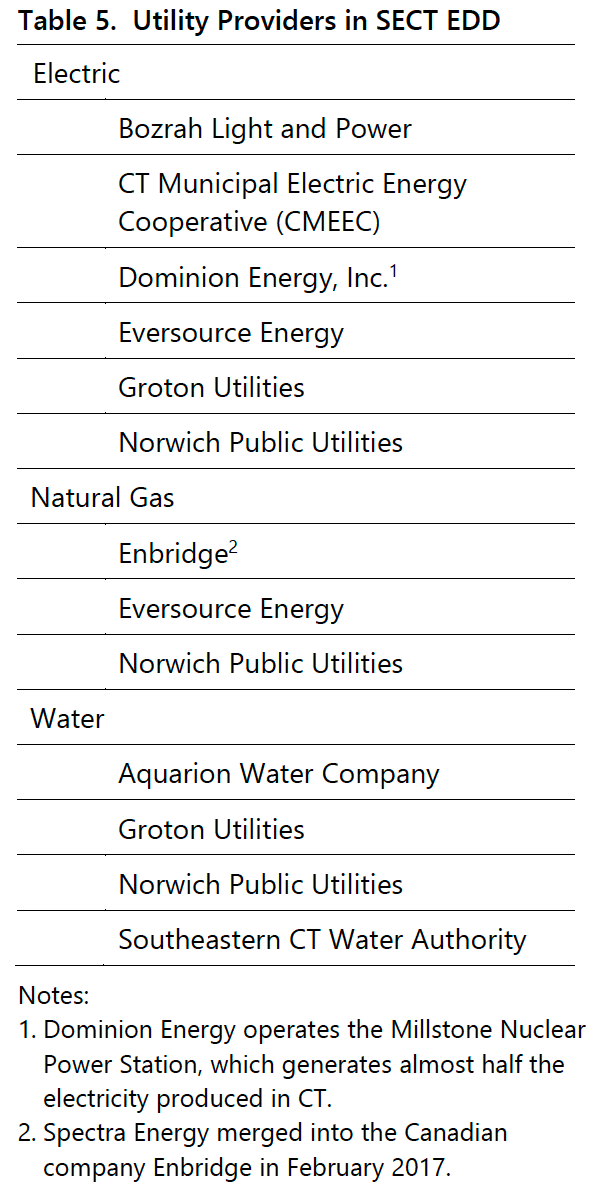Overview of the Economy
UTILITIES
SECT EDD is fortunate to be served by several reliable local utility companies; however, despite this competitive advantage, energy costs in CT continue to be among the highest in the country (Table 5). Business expansion is prohibitively expensive due to the high cost of electricity, oil and gas. Limited public water, wastewater treatment capacity and natural gas supplies may limit some rural and suburban areas from providing the necessary utility infrastructure and services to support denser housing and increased commercial activity. Stakeholders in the region identified the need for energy efficiency in real estate development and the importance of partnerships and collaboration to leverage funding for necessary infrastructure.

Broadband availability and accessibility has taken on new importance as Covid-19 demonstrated just how unequal access and use of the internet is in the region and the U.S. as a whole. Broadband availability in the region still shows portions of the EDD where access is less than 25 percent in some areas (Figure 17). To address this on a national scale, the U.S. Congress included provisions in the American Rescue Plan Act to support broadband buildout and crafted and funded ($42.45 billion) a new program, the Broadband Equity, Access, and Deployment (BEAD) Program, as part of the Infrastructure Investment and Jobs Act. The program aims to expand high-speed internet access by funding planning, infrastructure deployment and adoption programs in all 50 states and territories of the U.S. Of note is a provision which funds the installation of internet and Wi-Fi infrastructure or providing reduced-cost broadband within a multi-family residential building, with priority given to buildings that have a substantial share of unserved households or is in a location in which the percentage of individuals with a household income that is at or below 150 percent of the poverty line (Frequently Asked Questions and Answers Draft Version 2.0 (doc.gov)).
